 This special day, also liturgically known as “Good Shepherd Sunday”, invites the Church to publicly pray for and promote vocations in all its forms.
This special day, also liturgically known as “Good Shepherd Sunday”, invites the Church to publicly pray for and promote vocations in all its forms.
Many parishes and religious institutes commemorate this day with prayer for vocations and vocation promotion events. Considering that 73 percent of women and men professing final vows participated in one or more parish activities and 88 percent served in one or more parish ministries before entering religious life, our presence and participation in activities that mark this special day is essential.
[Religious congregations] should consider asking local parishes for opportunities to speak, pray, and meet the parishioners before and after Masses. ~ NRVC website
It the joy of simplicity, the joy experienced daily by those who care for what truly matters: faithful closeness to God and to our neighbor. How good it would be if the same atmosphere, simple and radiant, sober and hopeful, were to pervade our seminaries, religious houses and presbyteries! I pray that you will experience this same joy, dear brothers and sisters who have generously made God the dream of your lives, serving him in your brothers and sisters through a fidelity that is a powerful testimony in an age of ephemeral choices and emotions that bring no lasting joy.
May Saint Joseph, protector of vocations, accompany you with his fatherly heart!
–Pope Francis, World Day of Prayer for Vocations, 2021

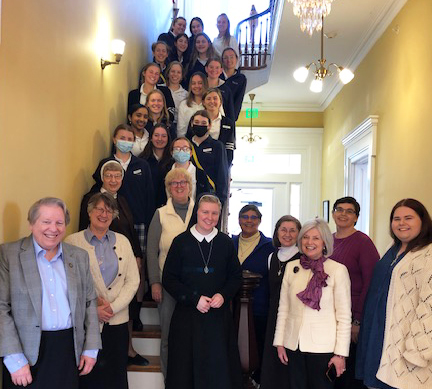
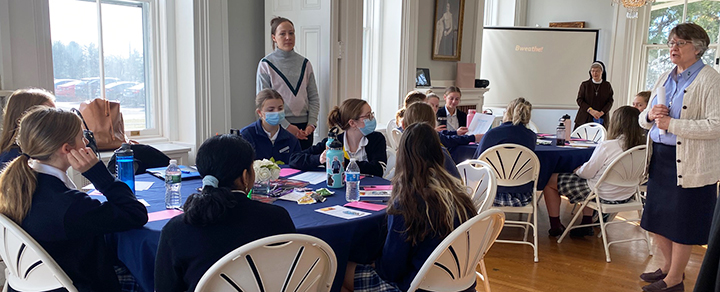
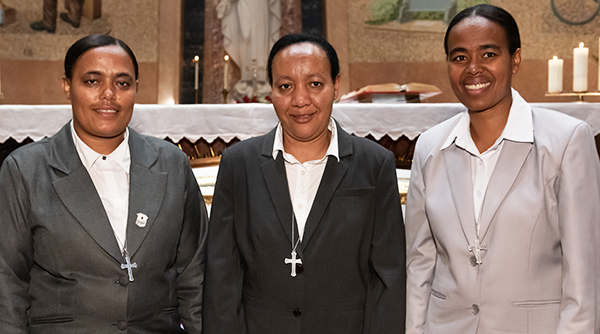 Sr. Asnakech Asefa, MSC, Sr. Aynalem Paulos, MSC, and Sr. Berhane Ashebo, MSC made lifelong vows of chastity, poverty and obedience in the presence of Sr. Barbara Staley, MSC, General Superior. Each asked the Holy Spirit to transform their consecration “into a commitment of love, an offering of praise, adoration and reparation in the Cabrinian spirit, so that I may bring the love of the Heart of Jesus to
Sr. Asnakech Asefa, MSC, Sr. Aynalem Paulos, MSC, and Sr. Berhane Ashebo, MSC made lifelong vows of chastity, poverty and obedience in the presence of Sr. Barbara Staley, MSC, General Superior. Each asked the Holy Spirit to transform their consecration “into a commitment of love, an offering of praise, adoration and reparation in the Cabrinian spirit, so that I may bring the love of the Heart of Jesus to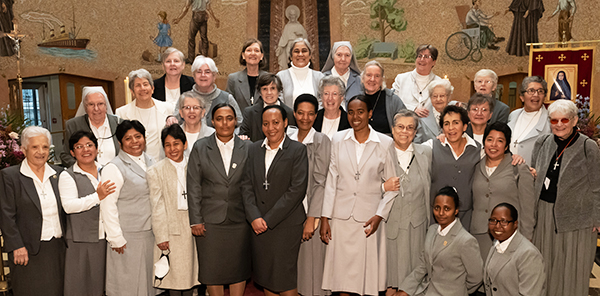 Sr. Evarlyn Ndeti, who entered the novitiate earlier this month, found the ceremony deeply moving. “I am so inspired to see these women committing their lives completely to Jesus,” she said.
Sr. Evarlyn Ndeti, who entered the novitiate earlier this month, found the ceremony deeply moving. “I am so inspired to see these women committing their lives completely to Jesus,” she said.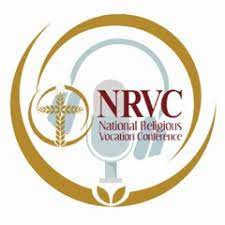
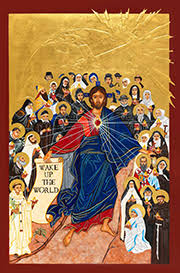 In 1997, Pope Saint John Paul II instituted a day of prayer for women and men in consecrated life. This celebration is attached to the Feast of the Presentation of the Lord on February 2nd. This Feast is also known as Candlemas Day; the day on which candles are blessed symbolizing Christ who is the light of the world. So too, those in consecrated life are called to reflect the light of Jesus Christ to all peoples. The celebration of World Day for Consecrated Life is transferred to the following Sunday in order to highlight the gift of consecrated persons for the whole Church.
In 1997, Pope Saint John Paul II instituted a day of prayer for women and men in consecrated life. This celebration is attached to the Feast of the Presentation of the Lord on February 2nd. This Feast is also known as Candlemas Day; the day on which candles are blessed symbolizing Christ who is the light of the world. So too, those in consecrated life are called to reflect the light of Jesus Christ to all peoples. The celebration of World Day for Consecrated Life is transferred to the following Sunday in order to highlight the gift of consecrated persons for the whole Church.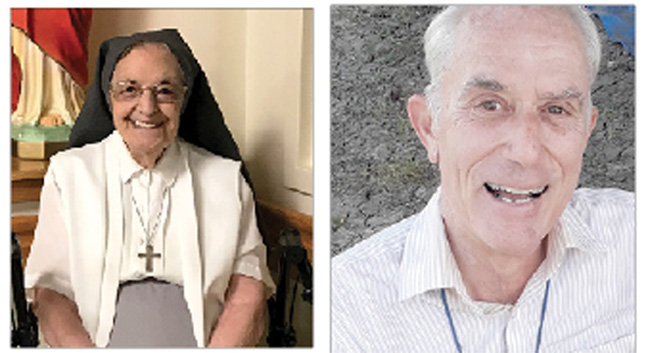
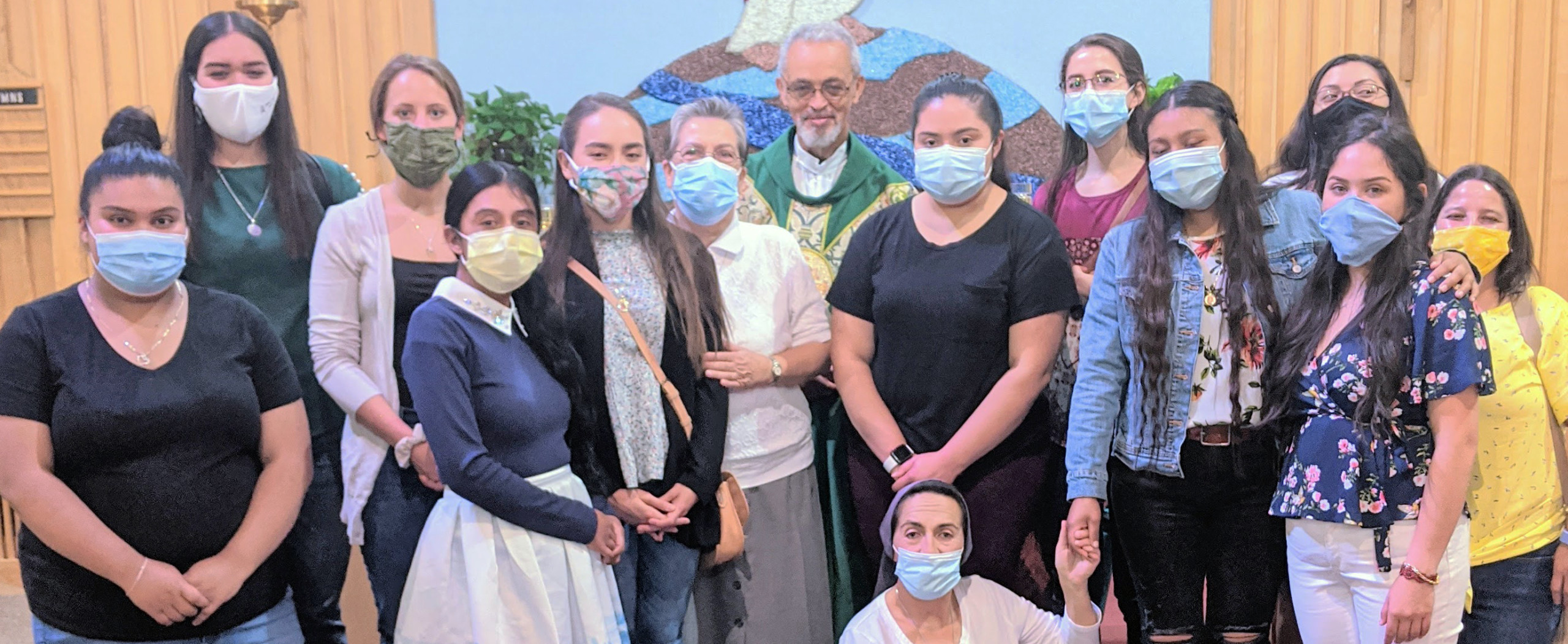
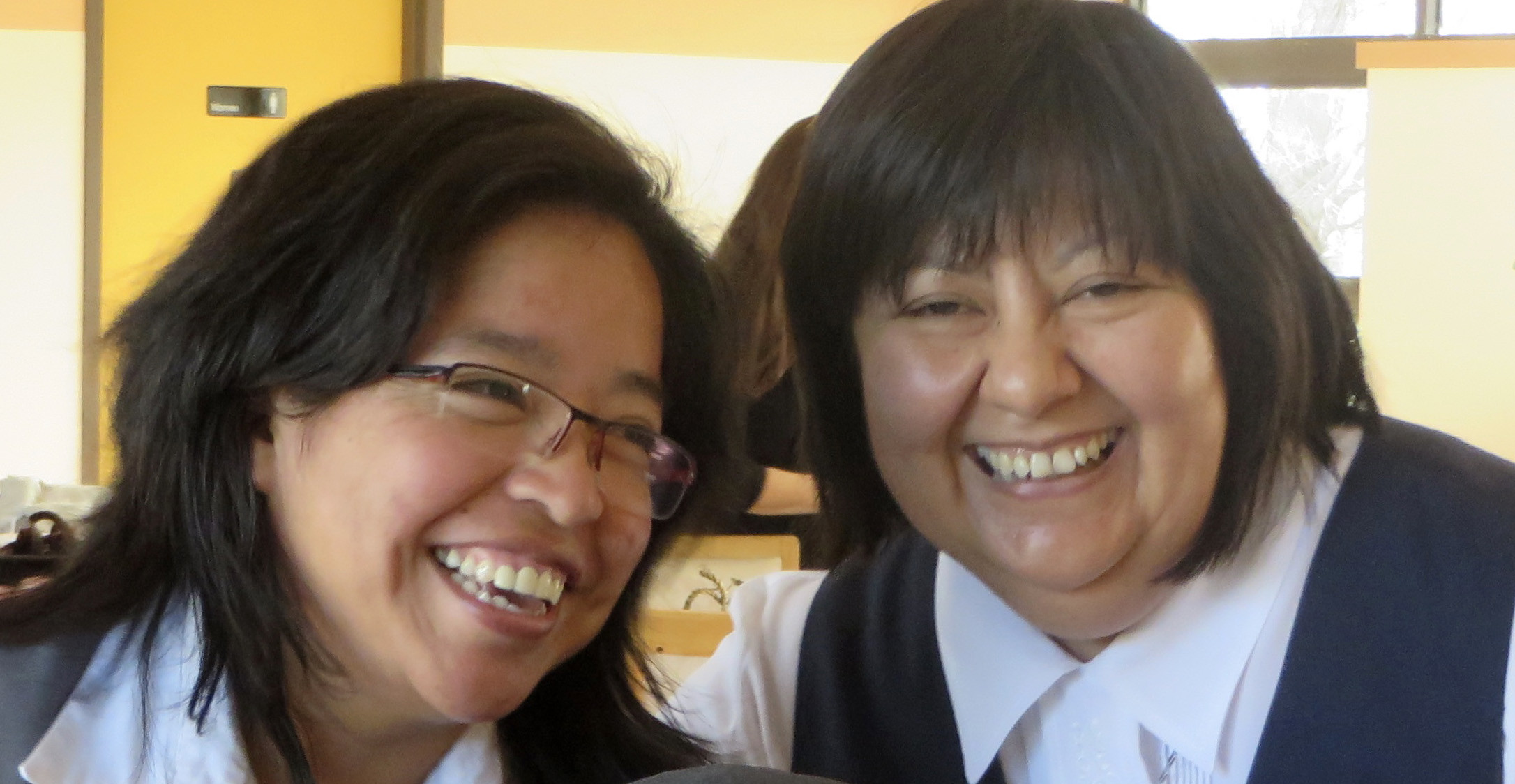
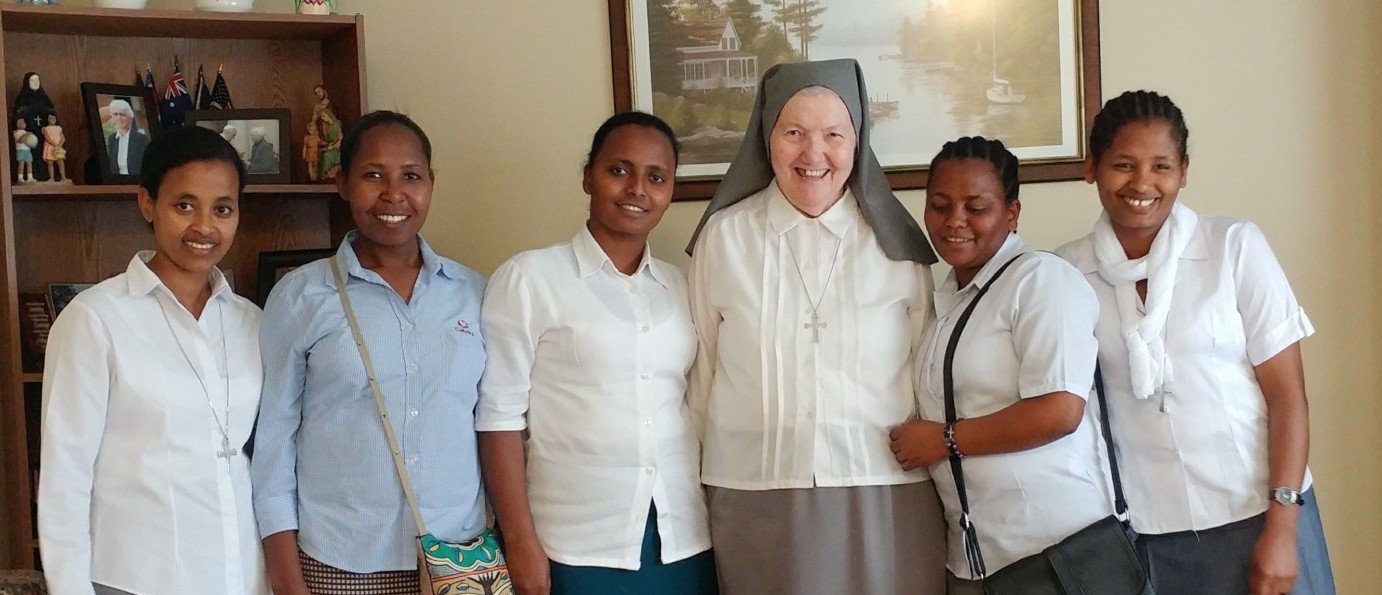

 8. Build a culture of vocations
8. Build a culture of vocations of us have long struggled with what it means to live simply, and we may be forced by realities into deeper examining of simple living and the choices we will need to make,” Sr. Wagner said.
of us have long struggled with what it means to live simply, and we may be forced by realities into deeper examining of simple living and the choices we will need to make,” Sr. Wagner said.